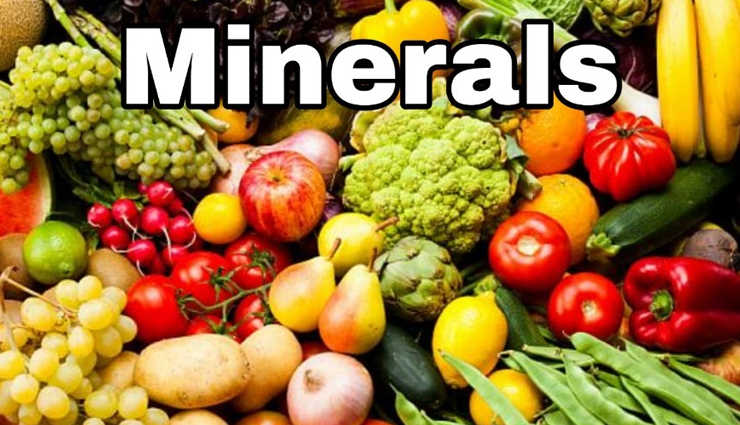- Home›
- Healthy Living›
- 6 Nutrients That Help In Keeping Your Mood Up
6 Nutrients That Help In Keeping Your Mood Up
By: Kratika Fri, 31 Dec 2021 2:33:31

Our mood is affected by a multitude of factors, like our activity levels, the amount of stress in our lives, our exposure to sunlight, and what we eat. There is no magic elixir that can take care of all the many influences on how we feel, but there are some foods that can help our bodies deal with stress, fatigue, depression, hunger, and some of the more controllable things that can sway our mood.
The brain is a complex organ that relies on the proper building blocks in order to function properly, regulate hormones, and control response to stress. Some of the vitamins, minerals, and nutrients it relies on to keep our moods balanced and upbeat include B vitamins, omega 3 essential fatty acids, magnesium, selenium, tryptophan, tyrosine, melatonin, serotonin, dopamine, and oxytocin. Fiber, carbohydrates, and antioxidants are more nutrients that play roles in keeping our mood up and our brains functioning optimally.

# B Vitamins
B vitamins are critical for healthy mental and emotional well-being. These vitamins are not stored in the body, so we must rely on our daily intake from foods to keep the supply steady. Each B vitamin has a different job in the body, but each one is important and linked to so many other aspects of health. They aid in breaking down amino acids, producing hormones, creating red blood cells, and releasing energy from blood sugar. A deficiency in any B vitamin often leads to fatigue, depression, anxiety, dementia, and even paranoia. Synthetics aren’t the answer. They are made from petroleum derivatives and are not as usable by our bodies as the natural forms found in foods.

# Omega 3s
These essential fatty acids are vital to reducing inflammation throughout the body and the brain. Inflammation in the brain, even microscopic inflammation, does damage to the neurons and alters the productivity of our most important organ. By counteracting inflammation, we fight depression, anxiety, ADHD, dementia, and more. Healthy fats are also used in the cellular membranes of neurons and to create many of our hormones. Microalgae, purslane, flax seeds, and sacha inchi are some of the best plant sources of omega 3s, but olive oil, hemp seeds, chia seeds, walnuts, avocado, and many other seeds and nuts contain some as well.

# Fiber
Fiber helps alleviate hunger and the irritability that can come with it. Fiber also aids digestion and releases nutrients slowly into the bloodstream so the body has time to put them to good use. Fiber-rich foods abound in the natural world.

# Minerals
Magnesium and selenium are crucial to the synthesis of hormones, including serotonin, dopamine, and a few other mood-boosting neurotransmitters. Potassium, sodium, calcium, and zinc help maintain a healthy and functional nervous system too. Salt is detrimental in large amounts, but is necessary for our health in small doses, especially when we’re active. It helps keep the body hydrated, aids in the removal of wastes, and has been linked to resisting depression; just don’t overdo it.

# Quality Protein
The amino acids tyrosine and tryptophan are also crucial to the synthesis of hormones and neurotransmitters like serotonin, dopamine, melatonin, and more. Too much protein, especially animal proteins, can contribute to inflammation.

# Good Carbs
Carbohydrates are what the brain uses for fuel. When we eat good carbohydrates, our brains thrive on them and our mood improves. Simple sugars, like we find in snacks, sodas, and many juices, are the enemy of your brain health. They trigger inflammation and make the body respond with excess insulin causing spikes and lows. These yo-yo ups and downs are hard on the body and the brain, resulting in fatigue, loss of focus, fogginess, and even depression.





